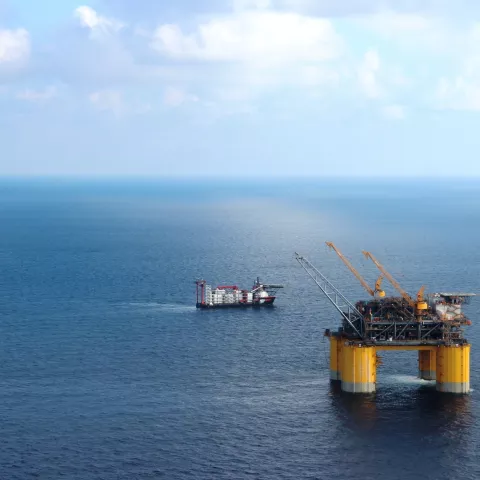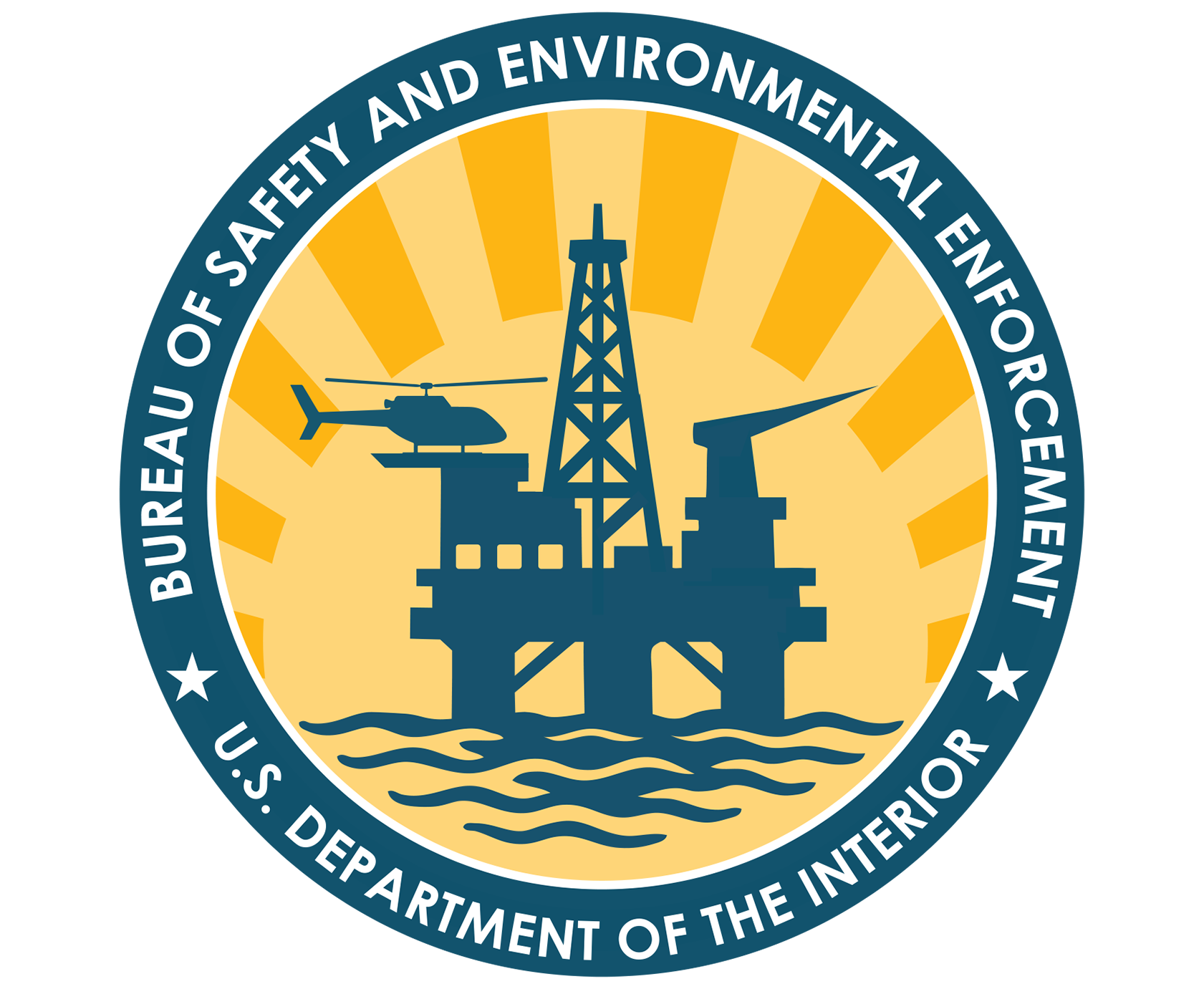
You are viewing ARCHIVED content published online before Jan. 20, 2025. Please note that this content is NOT UPDATED,
and links may not work. Additionally, any previously issued diversity, equity, inclusion or gender-related guidance on
this webpage should be considered rescinded. For current information, visit
News Items | Bureau of Safety and Environmental Enforcement.
NEW ORLEANS – Bureau of Safety and Environmental Enforcement (BSEE) is supporting national security, the economy and American jobs by preventing the unnecessary stranding of known offshore oil and natural gas reserves from the Outer Continental Shelf (OCS). BSEE approves life extensions for certain production facilities when necessary to capture the additional, known natural resources. Without these extensions, oil and gas production would cease and it would be uneconomical to replace the facilities.
“An essential part of BSEE’s mission is to require robust oil and natural gas production offshore through safe and environmentally sustainable operations,” said BSEE Director Scott Angelle. “When BSEE engineers evaluate and if warranted, approve a project’s design life extension, we work to avoid stranding assets offshore and maximize safe energy production for the Nation.”
As of January 1, 2020, there were 50 floating production platforms and two compliant tower production platforms operating in the Gulf of Mexico. Over the past three years, these facilities produced more than 1.5 million barrels of oil per day and 1.7 billion cubic feet per day (BCFD) of natural gas.
Oil produced from the OCS, and particularly the Gulf of Mexico, accounts for about 15 percent of all U.S. oil production. Natural gas produced from the OCS accounts for 3% of all U.S. natural gas production. Approximately 87% of total OCS production comes from the deepwater production facilities in the Gulf.
“Operators must submit requests for life extensions,” said Kevin Karl, BSEE Gulf of Mexico Deputy Director. “Approvals are not automatic. BSEE evaluates them on a case-by-case basis. BSEE engineers thoroughly review requests and accept those where operators demonstrate their platforms are suitable for continued oil and natural gas operations.”
BSEE uses a robust infrastructure verification program that specifies the use of a certified verification agent to evaluate an operator’s request for a platform extension.
“Well designed, fabricated, installed, maintained and operated platforms are good candidates for extensions,” said Karl. “When BSEE grants extensions, we are permitting the continuation of use of existing facilities, but only after a robust review. This in turn prevents the unnecessary stranding of America’s offshore energy assets through additional and safe production.”
“Maximizing the production of oil and natural gas from deepwater projects supports national security, the economy and American Jobs,” said Angelle. “Extensions also result in billions more in revenue for the America people,” Angelle noted, “and it’s more important than ever because President Trump’s recent Great American Outdoors Act – the most significant public lands conservation legislation in 50 years – pledges to use royalty revenue from offshore oil and natural gas operations to protect and repair America’s national parks and public lands.”
The Bureau of Safety and Environmental Enforcement (BSEE) is the lead federal agency charged with improving safety, ensuring environmental protection and conserving resources related to the offshore energy industry, primarily oil and natural gas, on the U.S. Outer Continental Shelf (OCS). BSEE is also responsible for ensuring facilities in State waters are maintaining response plans as required by the Oil Pollution Act of 1990. Under President Trump, BSEE is conducting more inspections, increasing the number of safety initiatives and ensuring more offshore oil and gas workers receive critical safety information.
-BSEE-
